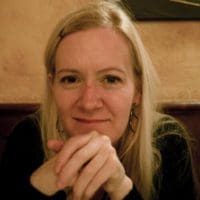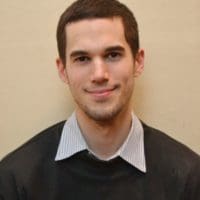This past winter, it was my honor and pleasure to participate in a Mind & Life Research Workshop convened by the Contemplative Development Mapping Project (CDMP). The CDMP is a group of scholars, scientists, and practitioners who are personally and professionally committed to enriching our understanding of contemplative practices and experiences. This interdisciplinary “think tank” is comprised of researchers from a range of disciplines, including philosophy, sociology, psychiatry, psychology, neuroscience and religious studies. By integrating first-person, second-person, and third-person methodologies as a means of investigating the nature and trajectory of contemplative development, the group aims to draw upon the unique academic approaches of each of its members to produce high-quality interdisciplinary scholarship and research.
Since 2011, the CDMP has gathered annually, combining academic presentations and discussions with an innovative, self-directed retreat format. These hybrid conference/retreats provide a unique, informal opportunity for discussing works-in-progress, innovative and experimental ideas, and projects that align with questions born out of contemplative practice.
From December 30, 2014–January 4, 2015, the CDMP gathered at the Barre Center for Buddhist Studies for their 4th conference/retreat, supported in part by Mind & Life Research Workshop funding. The experience was highly beneficial—generating useful insights for the individual participants, and also shedding light on a new path for the field by deeply integrating practice, scholarship, and discussion to arrive at more holistic insights about the nature of contemplative practice.
Participants (listed below) investigated the theme of Buddhist modernism and its impact on the contemplative practices and experiences of contemporary Buddhists. This event was designed and hosted by Dr. Willoughby Britton and Dr. Jared Lindahl, co-directors of the Varieties of Contemplative Experience research project at Brown University, and board members of CDMP. Below, they summarize the workshop and next steps for this initiative.
–Wendy Hasenkamp
Senior Scientific Officer, Mind & Life
While contemplative science research has explored the myriad ways that contemplative practices may enhance human flourishing, very little is known about individual differences and under what conditions contemplative practices produce less than ideal, or even harmful effects. In order to maximize the potential of contemplative practices to enhance human flourishing and alleviate human suffering, a comprehensive map of all outcomes—both positive and negative—is needed.
The Varieties of Contemplative Experience (VCE) project aims to describe the full range of experiences that can result from contemplative practices, with a particular emphasis on under-studied difficult or challenging experiences. Supported by funding from Mind & Life, qualitative analysis of interviews with 30 meditation teachers and 60 practitioners from across Theravada, Zen, and Tibetan Buddhist traditions have thus far yielded 57 phenomenological categories of experiences, including changes in cognitive, perceptual, affective, somatic, sense of self, and social domains. However, while we now have a phenomenology of difficult meditation experiences, we have little understanding of what causes them or how they can be managed or avoided.
The most recent CDMP workshop brought together 13 participants—comprised of scholars from multiple academic disciplines, meditation teachers, and retreat staff—to better understand the influencing factors leading to difficult meditation experiences, as well as to brainstorm ways in which practitioners can be better supported in navigating those difficulties and challenges. Our discussions were framed, in part, around narrative reports from contemporary meditators in the VCE project about challenging experiences directly arising from their contemplative practice. Also at the heart of this workshop was the investigation of the differences between modern American and traditional Buddhist practices and, consequently, how those differences may be understood so that contemporary meditative traditions and meditation-based interventions can best promote human flourishing.
Interdisciplinary Workshop Structure
To provide an opportunity for participants to engage both personally and professionally with these themes, each day began with silent, self-directed practice until the afternoon. In advance of the meeting, participants were provided with narrative excerpts from the VCE data set, and some participants also brought related narratives from their own teaching or research to present as case studies. Every morning participants were presented with a set of questions or themes to explore during the self-directed morning practice session. Participants could use this time to research, to review the data, to write, or to investigate questions in the laboratory of their practice experience. Topics included: motivations, goals, expectations, and limits of contemplative practice; acceptance and rejection as a feature of practice and experience; interfacing with the society and the world; and factors influencing practice trajectory that don’t come from a practice tradition. In the early afternoon, practitioners assembled for a “group interview” in which these themes were initially explored in relation to their own practice experience. These discussions generated new questions and themes that were explored later in the afternoon, over dinner, and during the evening discussions, at which point individual presentations and directed inquires into the VCE data set took place.
Discussions over the course of the four days ranged widely, but included: insights into uniquely American cultural risk factors; the challenge of multiple frameworks (traditional, biomedical) for understanding unusual experiences; the self in relationship to social units in America vs. in Asia; the influence of renunciate motivations, striving, and doctrinal views on practice; the limits of Buddhist approaches to living in contemporary America; hyperexcitability and excitotoxity models for the neurobiology of certain anomalous meditation experiences; methodologies for cross-cultural studies of international movements such as Vipassana; and implementing safety mechanisms for retreat staff, meditation teachers, and their students.
Consistently moving between first-person practice experience, second-person group discussions, and third-person interdisciplinary analysis highlighted the value and necessity of bringing multiple vantage points to bear on a complex phenomenon such as the social, cultural, and psychological factors shaping the experiences of contemporary American Buddhist meditators. Having discussions evolve from each participants’ practice experience fosters effective inter-tradition dialogue, where careful listening to and appreciation of others’ perspectives was emphasized over attempts to assert a definitive statement on the topic at hand. So too, the differences in disciplinary perspectives—philosophy, history, religious studies, psychology, neuroscience, and journalism—were also intentionally highlighted in such a way that disciplinary methods and assumptions were encouraged to be voiced, rather than tacitly held.
These skillful approaches would not have been as successful without intentionally investigating our own experiences, our own expectations, and our own biases. For many, this was the hallmark of this year’s CDMP event. One participant found the structure for moving between these perspectives “well thought out, challenging and enjoyable.” Reflecting upon the influence of practice on the discussion sessions, another participant wrote:
It seemed that each of us was not simply engaging with others’ ideas intellectually but also making a hard-to-describe inner shift that allowed us to bracket our own agendas and opinions and enter into perspectives that might even have been jarring to our own. For me, this was an impressive and unprecedented exchange that not only stimulated my thinking but also expanded my world.
Overall, this CDMP meeting highlighted both the need and the methods for investigating and resolving some longstanding tensions and misunderstandings between the sciences and humanities that are impeding the progress of this interdisciplinary field. We look forward to continuing to explore new ways of promoting authentic and productive interdisciplinary dialogue around contemplative practice, and are encouraged by the success of this workshop approach thus far.
Next Steps
Beyond the meeting, the VCE team now aims to publish interdisciplinary papers on three topics central to the study: change in sense of self, de-repression of traumatic memories, and involuntary somatic movements. Continuing our research, we recently received a Mind & Life 1440 Grant to produce empirically-derived descriptions of social relationship factors that influence contemplative development. An enriched understanding of the impact of different types of social relationships will inform decisions on how best to structure and support contemplative practice programs
In time, we also expect to invite select participants to contribute to a “handbook” of contemplative experiences—a resource guide providing 1) rich descriptions of each phenomenological category from the VCE study; 2) perspectives from teachers, clinicians and scholars about potential causes and frameworks for understanding; and 3) practical remedies and management strategies. Such a diagnostic manual for meditation teachers and retreat staff could potentially be one of the most valuable outcomes of the VCE study.
Participants at the 2015 CDMP Workshop
- Willoughby Britton, PhD Assistant Professor, Psychiatry and Public Health, Director, Clinical and Affective Neuroscience Lab, Brown University
- Jared Lindahl, PhD Visiting Scholar, Cogut Center for the Humanities, Visiting Assistant Professor, Religious Studies, Director of Humanistic Research, Clinical and Affective Neuroscience Lab, Brown University
- David Cooper, MA Varieties of Contemplative Experience Assistant Project Manager, Clinical and Affective Neuroscience Lab, Psychiatry and Public Health, Brown University
- Nathan Fisher Varieties of Contemplative Experience Assistant Project Manager, Clinical and Affective Neuroscience Lab, Psychiatry and Public Health, Brown University
- David Loy, PhD Zen meditation teacher, philosopher, and Visiting Professor at Radboud University, The Netherlands
- Daniel Stuart, PhD Assistant Professor of Religious Studies, University of South Carolina
- William Waldron, PhD Professor of Religion, Middlebury College
- John Tresch, PhD Associate Professor, History and Sociology of Science, University of Pennsylvania
- Linda Heuman journalist for Tricycle magazine, journalism fellow in Science, Religion, and Buddhism for the John Templeton Foundation, Visiting Scholar, Religious Studies, Brown University
- Leigh Brasington Theravada Buddhist meditation teacher
- Eric McCord retreat staff at the Forest Refuge, Insight Meditation Society
- Barnes Peterson, LCMHC psychotherapist and clinical psychologist of mindfulness-based interventions
- Wendy Hasenkamp, PhD neuroscientist and Senior Scientific Officer, Mind & Life Institute
Willoughby Britton, PhD holds a BA in Neuroscience and a doctorate in Clinical Psychology, and is currently an Assistant Professor in the Departments of Psychiatry and Public Health at Brown Medical School and Research Director of the Brown University Contemplative Studies Initiative. She spent several years in Asia studying meditative techniques and received her mindfulness instructor certification training at the Center for Mindfulness at the UMass Medical School. With the aim of investigating the link between contemplative practices, brain function, sleep, attention and affective disturbances, she has conducted federally funded randomized controlled trials on the neurophysiological effects of MBCT in depression. She is also investigating the question: Which contemplative practices are best (or worst) suited for which populations?
Jared Lindahl, PhD is Visiting Scholar at the Cogut Center for the Humanities and Director of Humanistic Research in the Clinical and Affective Neuroscience Lab at Brown University. He holds a PhD in Religious Studies from the University of California, Santa Barbara, where his dissertation research adopted a bio-cultural methodology to investigate the significance of light-related experiences and discourses in Buddhist and Christian contemplative traditions. His ongoing scholarship examines the history of contemplative practices in a range of contexts—from classical Greece, India, and Tibet to Buddhist modernism and the mindfulness movement in the United States. Recently he has been working collaboratively with neuroscientists and clinical psychologists to investigate the theory and practice of meditation from both humanistic and scientific perspectives.

Willoughby Britton, PhD
Brown University
Convening Faculty, Fellow, Grantee, Planning Committee Member



